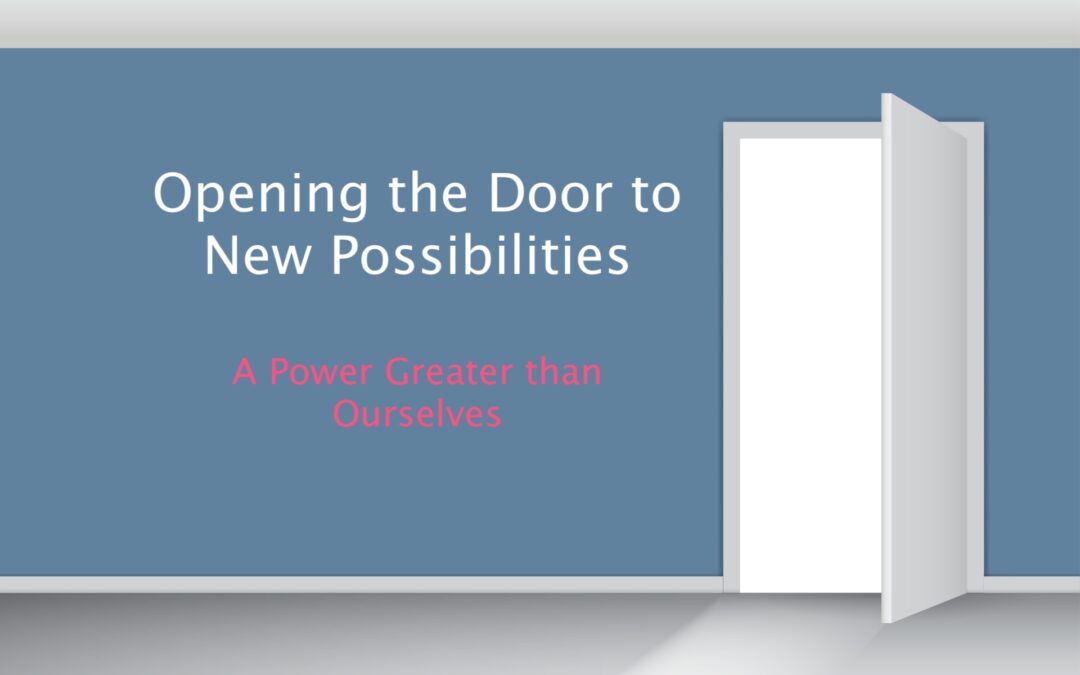“Came to believe that a Power greater than ourselves could restore us to sanity.”
As a pastoral counselor, people often come to me for help in overcoming their addiction because I bring both theological training and psychological education to the table. What surprises me most is how many begin by saying, “I called you because I wanted a Christian counselor.”
Yet, this does not mean they attend church regularly—or even at all. Many left the church years, even decades, ago. Some are unsure what they believe about God. Still, it’s not uncommon for them to tell me they pray, or that they consider themselves “spiritual.”
What unites all my alcoholic clients is a common realization: they cannot get sober on their own. They believe they need a Power greater than themselves to restore them to sobriety. The second step of A.A. uses the word “sanity.”
Most have tried to quit drinking many times. Each attempt failed. And not only have their attempts failed, but the lengths they’ve gone to keep drinking are often shocking. It’s little wonder alcohol destroys families—because there comes a point when it’s painfully clear: a person loves drinking more than they love their family, health, job, or anything —that’s the insanity of addiction.
In working with clients, I often ask them to name some of the irrational, even self-destructive choices they’ve made to protect their drinking or because they were drinking. People have put their families in danger, their own lives in danger, gotten arrested, gone in debt, lost their jobs, lied repeatedly to those who loved them the most, did unspeakable things in public, said things they can never take back, physically attacked loved ones and strangers, gambled away thousands of dollars, become unfaithful, and the list goes on and on.
Alcoholics are selfish—not because they are bad people, but because addiction drives selfishness to the forefront. The next drink becomes more important than anything else.
If that weren’t true, quitting would be simple. After all, when’s the last time you heard of someone ruining their life because they couldn’t stop drinking iced tea?
When a person finally realizes the insanity of the life they’ve built around alcohol—and that they are too deep in it to climb out alone—Step Two becomes essential.
Step Two: A Step of Hope
Step Two in Alcoholics Anonymous is a step of hope. To believe that a Higher Power is at work in your fight against addiction and despair is indispensable in overcoming addiction.
When I work with clients, I often invite them to share their understanding of God and their spiritual journey, however complicated or broken it may feel. A deep theological education is not required to invite God into your life. What is required is humility and a willingness to believe that help is possible.
God is infinite. We are finite. God is mysterious, and we can never fully understand how God works. What we need most is the humility to acknowledge this and the faith to trust that there is power available to help us find our way.
This step is not about perfection of belief—it’s about opening the door. It’s an opportunity to learn something new about God, to allow God’s Spirit to come alongside you, empower you, and give you strength to overcome addiction.
Spiritual Principles Behind Step Two
This step lays a foundation through key spiritual principles:
-
Awareness
-
Open-Mindedness
-
Willingness to Change
-
Faith
-
Trust
-
Humility
-
Belief in New Possibilities
Step Two begins with the words, “Came to believe.” This is not instant faith. It’s a process. What you believe about God may evolve over your lifetime, and it may shift even as you walk the path of sobriety. It starts with being open to new possibilities—acknowledging the finite serves and depends on the Infinite for existence, strength, and even our next breath.
This step doesn’t happen in a week or a month. It evolves. It’s ongoing. So, be patient with yourself.
Sobriety and the Surfer’s Wave
A surfer once described sobriety as waiting to catch a wave. Sometimes the sea is calm. Other times the waves crash with ferocity. Both require patience, humility, presence, faith, and trust in something uncontrollable and much bigger than us.
In Step One, the alcoholic admits life is unmanageable and gives up trying to be in control—just as a surfer cannot control the ocean. What surfer would be so arrogant as to say they control the waves? Yet, we are often just as arrogant when we think we can control our lives. Notice what sits at the center of the word pride: the letter “I.”
The goal is to let the power of God become the wave that carries you. Sobriety is not achieved by willpower—it is found in partnership with a Greater Power. When you and the Spirit work together, there is strength enough to overcome, to move forward, and to live free. This is the heart of sobriety.
This article is a series on The Twelve Steps of Alcoholics Anonomous. To read the article on Step One, go to https://johnmichaelhelms.com/alcohol-is-a-trojan-horse-in-your-house/

